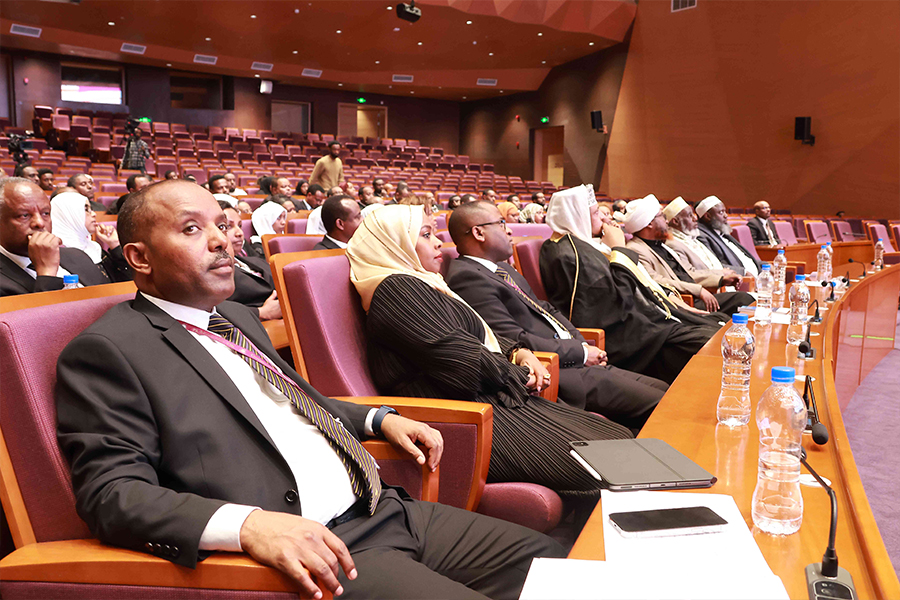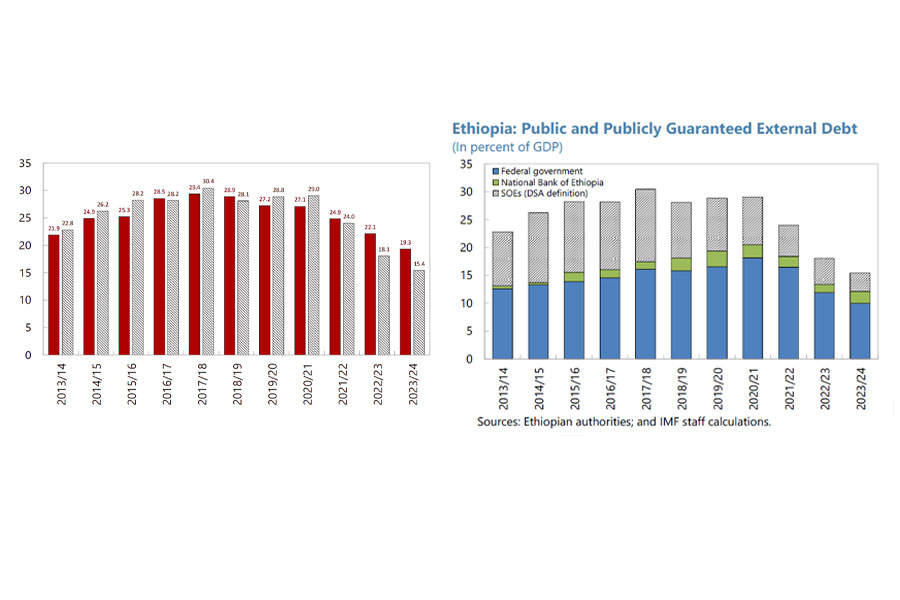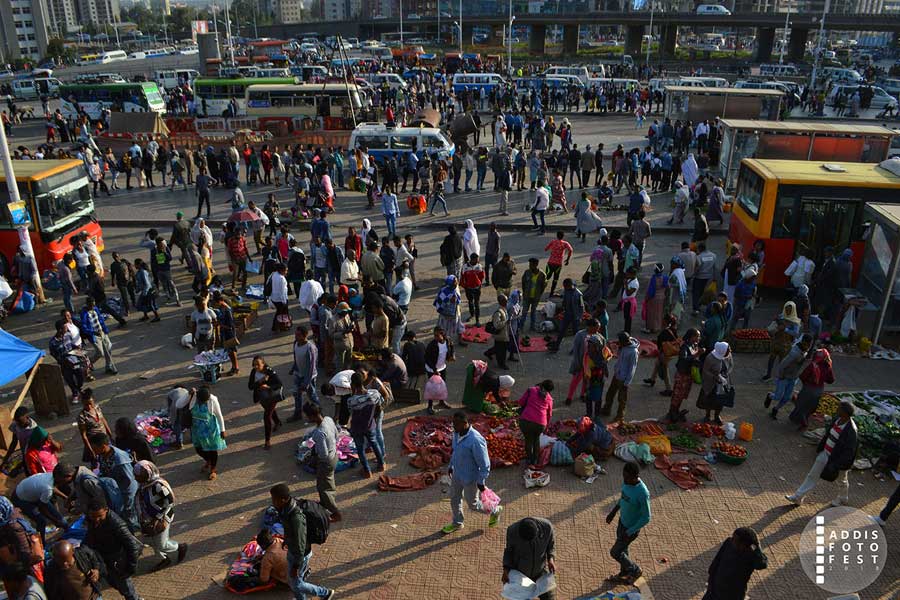
My Opinion | Feb 06,2021
Jan 19 , 2024
By MUNIR SHEMSU ( FORTUNE STAFF WRITER )
A mixed bag of tight fiscal space, economic growth and fragility in Ethiopia is presaged by the flagship World Bank report released last week. 'Global Prospects Report' comes amid increased incidences of extreme food insecurity, debt default and a foreign currency drought.
World Bank's prognosis suggests a 0.6pc slowdown in Ethiopia's growth, projecting a 5.8pc figure for the current year, a sharp contrast to the government's optimistic 7.5pc estimate. The report cites increased fiscal and external pressures as contributors to this deceleration, with hopes pinned on a rebound in 2024 contingent on sustained peace and agricultural productivity amid declining fertiliser prices.
Growth among fragile lower-income countries is estimated to increase from three to 5.4pc powered by the two largest economies, of which Ethiopia is one, due to increased investment and a recovery in government consumption, while the Democratic Republic of Congo is expected to benefit from expanding metal exports.
Globally, the World Bank predicts a deceleration in growth for the third consecutive year by 2.4pc, while Sub-Saharan Africa is expected to experience a decrease of 0.3pc to 2.9pc growth. The report emphasises the importance of nuanced economic assessments to capture the complexities of the situation.
Ethiopia has faced a series of shocks, both internal and external, impacting the population's livelihoods, a reality not fully captured by traditional economic growth estimates. Economists such as Arega Shumete (PhD), express reservations about relying solely on GDP as an indicator, emphasising the need for more nuanced approaches that consider net production estimates.
"GDP does not reflect the net losses," he told Fortune. "Some sort of net production estimate would be more apt".
He cautions against crafting policies that fail to take into account food inflation, the rule of law, peace, security and health status, which have plummeted over the past few years.
"Development indexes better capture the realities of everyday life," he said.
The growth rate forecast hinges on maintaining fragile peace, reflected positively in the November treaty between forces in Tigray Regional State and the federal government. It aligns with the latest findings from the UN Office for the Coordination of Humanitarian Affairs, indicating the convergence of climate crises, armed conflicts, diseases, and economic shocks. Over 20 million people in Ethiopia are reported to require immediate food assistance while 3.7 million cases of malaria and 4.1 billion dollars are required in emergency funding.
Ethiopia's budget for the fiscal year, amounting to 801.6 billion Br, signals modest growth, the smallest in the last two decades. A tightening of fiscal space for most of the countries categorised as Emerging Market Development Economies (EMDE) will likely transpire over the coming year as countries with lower sovereign creditworthiness struggle to cope with dollar-denominated bond yields much higher than nominal GDP growth rates.
Ethiopia's credit rating was lowered to junk territory last month by the Fitch rating agency, and its long-term foreign currency issuer default rating (IDR) to 'RD' (Restricted Default) from 'C' following a missed coupon payment of 33 million dollars.
A macroeconomist who requested anonymity questioned the reliability of data that would suggest a GDP growth estimate for a country dealing with severe macroeconomic instability, recent debt default and the wisdom of providing policy prescriptions based on it. The country's ability to take advantage of the nearly 50pc decline in international fertiliser prices is questionable for the economist, as Ethiopia navigates a pernicious foreign currency crunch and precarious geopolitical waters.
"It's tough to respond to fake data seriously," he told Fortune.
The report acknowledges the difficulties but forecasts economic growth of 6.4pc for Ethiopia in 2023, contingent on sustained peace and purported increases in poultry and fruit production.
Agriculture accounted for 31.5pc of Ethiopia's GDP last year to the tune of 728 billion Br. The sector's contribution to the country's merchandise exports was around 79pc. The fourth quarter report by the National Bank of Ethiopia (NBE) suggests an 18.4pc increment in the export of fruits and vegetables from last year as total exports plummeted by 14.7pc to 990 million dollars.
Mekonen Solomon, senior coordinator of horticulture at the Ministry of Agriculture, ascribes the purported increment in fruit production to vast expanses of avocado cultivation powered by the Mashav Project, an Israeli development initiative targetting improved varieties and irrigation technologies. He said a slight increment in exports has been observed over the past six months but suggests that an in-depth study of the dynamics surrounding the cultivations would be needed for concrete forecasts.
"Assuming success across the board, there will be a high yield increase," he said.
From the 547,000tns of horticultural products last year on 1.5 million hectares, 61pc were fruits with a decade-long increase of 192pc to 173,000tns. Recent diseases such as White Scale disease have wreaked havoc on most citrus fruits, particularly devastating mango production in the country, which has been spreading after first appearing in the country a decade ago.
Mekonen is unsure about a massive expansion in fruit production as high-producing regions in Wellega Zone, Oromia Regional State, also have a precarious security situation, pinning his hopes on recent high producers in South Western and Amhara regional states for short-term growth.
"The WB is likely using satellite data," he told Fortune.
PUBLISHED ON
Jan 19,2024 [ VOL
24 , NO
1238]

My Opinion | Feb 06,2021

Radar | Mar 02,2024

Radar | Dec 14,2019

My Opinion | Sep 14,2024

Radar | Nov 04,2023

Fortune News | Sep 21,2025

Fortune News | Oct 23,2018

Commentaries | Nov 05,2022

View From Arada | Jul 24,2021

Agenda | Feb 01,2020

Dec 22 , 2024 . By TIZITA SHEWAFERAW
Charged with transforming colossal state-owned enterprises into modern and competitiv...

Aug 18 , 2024 . By AKSAH ITALO
Although predictable Yonas Zerihun's job in the ride-hailing service is not immune to...

Jul 28 , 2024 . By TIZITA SHEWAFERAW
Unhabitual, perhaps too many, Samuel Gebreyohannes, 38, used to occasionally enjoy a couple of beers at breakfast. However, he recently swit...

Jul 13 , 2024 . By AKSAH ITALO
Investors who rely on tractors, trucks, and field vehicles for commuting, transporting commodities, and f...

Oct 18 , 2025
The political establishment, notably the ruling party and its top brass, has become p...

Oct 11 , 2025
Ladislas Farago, a roving Associated Press (AP) correspondent, arrived in Ethiopia in...

Oct 4 , 2025
Eyob Tekalegn (PhD) had been in the Governor's chair for only weeks when, on Septembe...

Sep 27 , 2025
Four years into an experiment with “shock therapy” in education, the national moo...